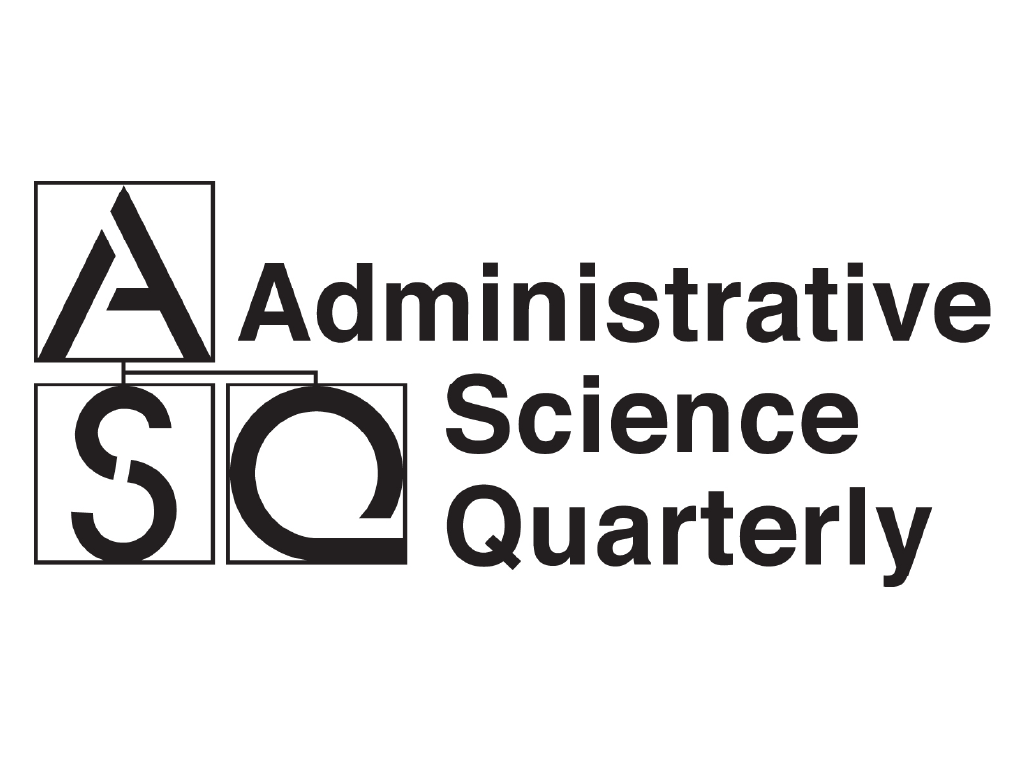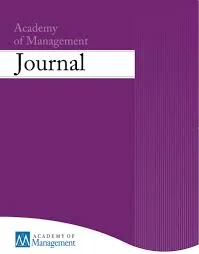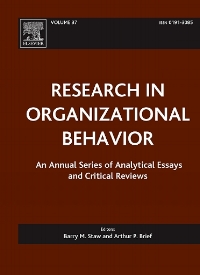Research
Michael's research investigates efforts to organize in ways that distribute authority, decision making, leadership, and voice more widely than in conventional hierarchical structures. He studies these efforts through immersive longitudinal field work in organizations, employing both ethnographic methods as well as field experiments. I combine a commitment to deep rigorous field work with a keen interest in developing actionable insights for organizational leaders.
Featured Working Papers & Projects
Durable Decentralization: Enabling Temporary Centralization While Preserving Commitments to Decentralization (Conditionally accepted by Administrative Science Quarterly)
Decentralized organizations face situations where temporary centralization of decision-making is useful or necessary. However, centralization risks undermining the internal legitimacy of the decentralized system. Through a comparative case study of four decentralized organizations that centralized authority during the COVID crisis, we identify two factors that allow decentralized organizations to flexibly centralize without undermining internal legitimacy. First, we find that a set of explicit rules governing both the distribution of authority as well as how authority could be changed facilitates the centralization of decision making while preserving the legitimacy of the broader decentralized system. We conceptualize this set of rules as a constitutional system of authority. The degree of openness and care displayed by leadership in enacting centralized authority serves as a secondary factor that supports perceptions of legitimacy during centralization. This study builds theory regarding the factors that contribute to the durability of decentralized organizing, prompting a reappraisal of decentralized organizing as fragile. Furthermore, this study compels a broadened conceptualization of decentralization that captures not only the distribution of operational authority but also the distribution of rule-making authority. (Co-authored with Trevor Young-Hyman)
The Demands of Freedom, The Desire for Refuge: Examining Preferences for Radical Decentralization versus Hierarchy (Under Review, Strategic Management Journal)
Radical decentralization has generated enthusiasm and hype as a liberating alternative to hierarchical structures. Yet we know little about whether individuals actually prefer radically decentralized structures to hierarchies. Leveraging three experimental studies—two discrete choice experiments and one field experiment—we find that individuals do not prefer radical decentralization over hierarchical structures, even centralized hierarchies. Furthermore, we find that while individuals value decentralization over centralization within hierarchical contexts, they do not generally prefer decentralization when it means eliminating hierarchical authority altogether. Examining the perceptual mechanisms of this preference, we find that the structure and support offered by hierarchy drive preferences away from radical decentralization and towards hierarchy. Even when radical decentralization was supplemented with additional structure and guidance, preferences for hierarchy remained. These findings challenge prevailing assumptions that radical decentralization aligns with universal human preferences and suggest that individuals value both autonomy and support, with hierarchy providing unique forms of structure and support that radically decentralized models struggle to replace. (Co-authored with Paul Green)
The Building Blocks of Decentralization: Towards an Integrative Framework For Comparative Organization Design Research (Under Review, Organization Science)
Decentralization is a foundational element of organizational design, yet existing research on the topic remains fragmented and lacks an integrative conceptual framework. Decentralization is either portrayed as a unidimensional construct that varies along a single axis or as a set of irreducible archetypal forms that are difficult to compare. In this paper, we develop a componential framework for analyzing decentralization that identifies its core building blocks: who holds influence, over what decisions, in what form, and how that influence is distributed. This framework enables systematic classification and comparison across a wide range of decentralized forms, including hybrid and emergent models. We apply the framework to existing models in the literature, revealing how they selectively emphasize different aspects of decentralization while overlooking others. We further demonstrate the framework’s integrative potential by applying it to research domains where findings about the effects of decentralization have been inconsistent, showing how disparate findings can be reconciled, and pointing to new directions for future inquiry. In doing so, we lay the groundwork for a more cumulative, comparative, and analytically precise research agenda on decentralization in organizations (Co-authored with Trevor Young-Hyman and John Eklund)
Publications
Enacting Decentralized Authority: The Practices and Limits of Moving Beyond Hierarchy (Administrative Science Quarterly, 2024)
Decentralization as an organizing principle has drawn growing interest from scholars and practitioners because of its perceived suitability for contemporary market conditions and alignment with employees’ evolving work expectations. However, efforts to decentralize authority face significant obstacles and often end in failure. I propose that existing research on decentralization has struggled to generate insight into how such barriers can be overcome because it has treated decentralization as a static outcome imposed by organizational designers. In contrast, this article treats decentralization as a dynamic and situated achievement that must be continually enacted, and it leverages ethnographic data from a decentralization effort in order to build theory on the organizational practices that support enactments of decentralized authority. I find that successful enactments of decentralized authority were supported by practices that established clear boundaries of authority and focused collective attention on these boundaries, as well as by practices that depersonalized collective attributions of the source of authority. At the same time, the practices were difficult to sustain because they were cognitively, emotionally, and temporally demanding. Through this study, I show that decentralization is not merely a one-time structural change but an ongoing collective process that requires navigating and neutralizing the structural and psychological forces pulling organizations back toward hierarchy. (solo-authored)
Fostering Positive Relational Dynamics in Teams: The Power of Spaces and Interaction Scripts (Academy of Management Journal, 2020)
Despite well-accepted understanding that relational dynamics characterized by respect, openness and connectedness are critical for healthy team functioning, we know little about how to foster such dynamics. Drawing on observation and interview data from an intervention that fostered positive change in the relational dynamics of a global distributed team, this paper theorizes the mechanisms that enabled a move toward positive relational dynamics. We found that the intervention brought about relational changes by not only creating spaces where the team could experiment with new forms of interaction, but also by utilizing interaction scripts – concrete guidelines for interaction that specify content parameters and participation rules. We find that the combination of spaces and interaction scripts was critical for helping the team enact counter-normative forms of interpersonal sharing that led to the emergence of positive relational dynamics. While existing research has highlighted the importance of spaces for enabling positive relational change, this paper theorizes the complementary role that interaction scripts can play in the change process. These findings have implications for research on positive relationships at work, organizational change, and global and geographically dispersed teams. (Co-authored with Leslie Perlow and Melissa Mazmanian)
Self-Managing Organizations - Exploring the Limits of Less-Hierarchical Organizing (Research in Organizational Behavior, 2017)
Fascination with organizations that eschew the conventional managerial hierarchy and instead radically decentralize authority has been longstanding, albeit at the margins of scholarly and practitioner attention. Recently, however, organizational experiments in radical decentralization have gained mainstream consideration, giving rise to a need for new theory and new research. This paper reviews the literature on less-hierarchical organizing and identifies three categories of research: post-bureaucratic organizations, humanistic management and organizational democracy. Despite this extensive prior work, scholarly understanding of radical decentralization remains limited. Using the term self-managing organizations to capture efforts that radically decentralize authority in a formal and systematic way throughout the organization, we set forth a research agenda to better understand less-hierarchical organizing at its limits. (Co-authored with Amy Edmondson)
New Prospects for Organizational Democracy?: How the Joint Pursuit of Social and Financial Goals Challenges Traditional Organizational Designs (Capitalism Beyond Mutuality, 2018)
This book chapter argues that less-hierarchical designs, specifically democratic approaches to organizing, could have increasing relevance given the growing emphasis on social responsibility in corporations. Drawing on parallels with theories of political democracy, we argue that organizational democracy’s ability to integrate diverse viewpoints can support the joint pursuit of commercial and social objectives. We proceed, first, by drawing on an extensive literature review to assess the ways in which organizational democracy has been conceptualized in recent decades, and to document the relative lack of substantive discussion about it in comparison with other alternatives to hierarchy. We then characterize the recent surge of socially engaged models of enterprise and press the case that this turning point warrants reconsideration of the merits of organizational democracy. (Co-authored with Julie Batillana and Michael Fuerstein)
Practitioner Publications
The Challenges of Becoming a Less-Hierarchical Company (Harvard Business Review, 2024)
More and more organizations are looking to create flatter, less hierarchical models to increase collaboration, agility, and employee empowerment. But recent research at a food processing company in Colombia outlines some stumbling blocks companies might face when trying to change their structure. Specifically, the researchers and company CEO highlight a series of structural and people dynamics leaders should look out for in their own efforts (Co-authored with Eric Anicich and Juan Pablo Sanchez Celi)
How Companies Are Using Tech to Give Employees More Autonomy (Harvard Business Review, 2022)
While automation is the purest form of decentralization, rather than automating frontline workers, technology’s best use might be to automate the functions of management, especially middle management (e.g., coordination, accountability, direction, and governance). If technology is going to make something redundant, why not replace those things we currently don’t like — such as overly matrixed coordination, red tape bureaucratic processes, command-and-control decision-making (by people who don’t have the best data to make the decisions), and antiquated compliance approaches — rather than those we do (like our human colleagues)? (Co-authored with Ethan Bernstein and Joost Minnaur)
Beyond the Holacracy Hype: The Overwrought Claims - and Actual Promise - of the Next Generation of Self-Managed Teams (Harvard Business Review, 2016)
Holacracy and other forms of self-organization have been getting a lot of press. Proponents hail them as "flat" environments that foster flexibility, engagement, productivity, and efficiency. Critics say they're naive, unrealistic experiments. We argue, using evidence from a multi-year research agenda at several mainstream organizations that have adopted these forms, that neither view is quite right. Although the new forms (built upon on a half-century of research on and experience with self-managed teams) can help organizations become more adaptable and nimble, most companies shouldn't adopt their principles wholesale. A piecemeal approach usually makes sense. Organizations can use elements of self-management in areas where the need for adaptability is high, and traditional models where reliability is paramount. (Co-authored with Ethan Bernstein, John Bunch and Niko Canner)




